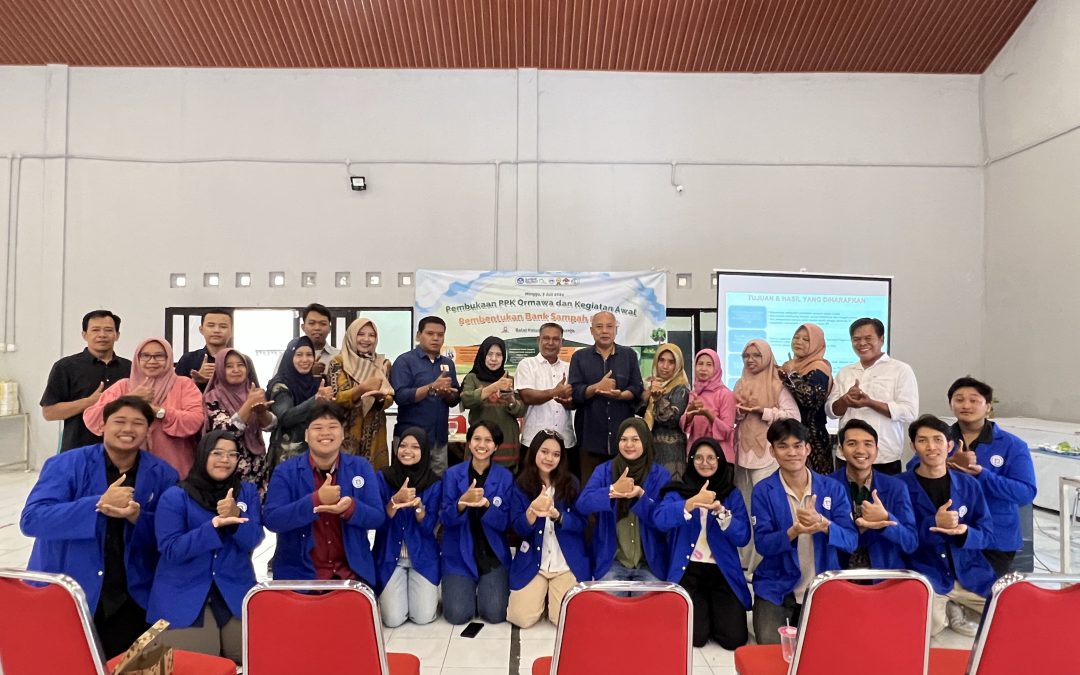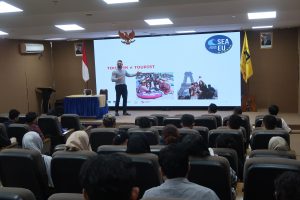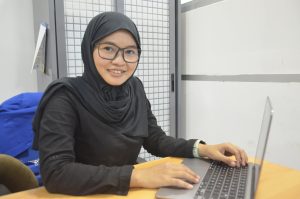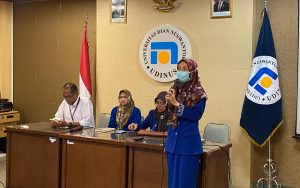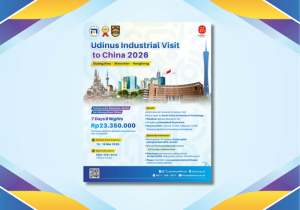Information Systems Students at Universitas Dian Nuswantoro (Udinus) digitized the waste bank management in Tugurejo. The digitalization was done by developing the Information Systems of Tugureho’s Waste Management shortened as ‘SIPSATU.’
The system was an output of the Student Organization Capacity Building Program (PPKO), which was conducted by a team comprised of students who were a part of the Information Systems Students Association (HM Sisfo) at Udinus. PPKO itself is a community service program initiated by students. On this occasion, the Information Systems Student Association chose the topic of ‘Digitalization and Optimization of Waste Bank through Alignment of Supply Chain Waste Management to Improve the Prosperity of the Locals.’
Tugurejo Area was selected as the object of this community service as the waste management within the area had been organized using the existing waste banks, but severely lacking in the administration department. Septyana Retno Kinanty, the leader of the team, informed us that the area, located near the coastline of Semarang, had already had two waste banks, with the administration being done manually. The Mawar Merah and Alamanda Waste Banks only scoped three out of five neighbourhoods, with a total of 280 customers.
“From the survey we conducted, we found that these waste banks were lacking in the usage of Information Technology. This causes the service to be slow, inaccurate, and untransparent in financial matters, causing the locals to not trust the waste banks,” she explained.
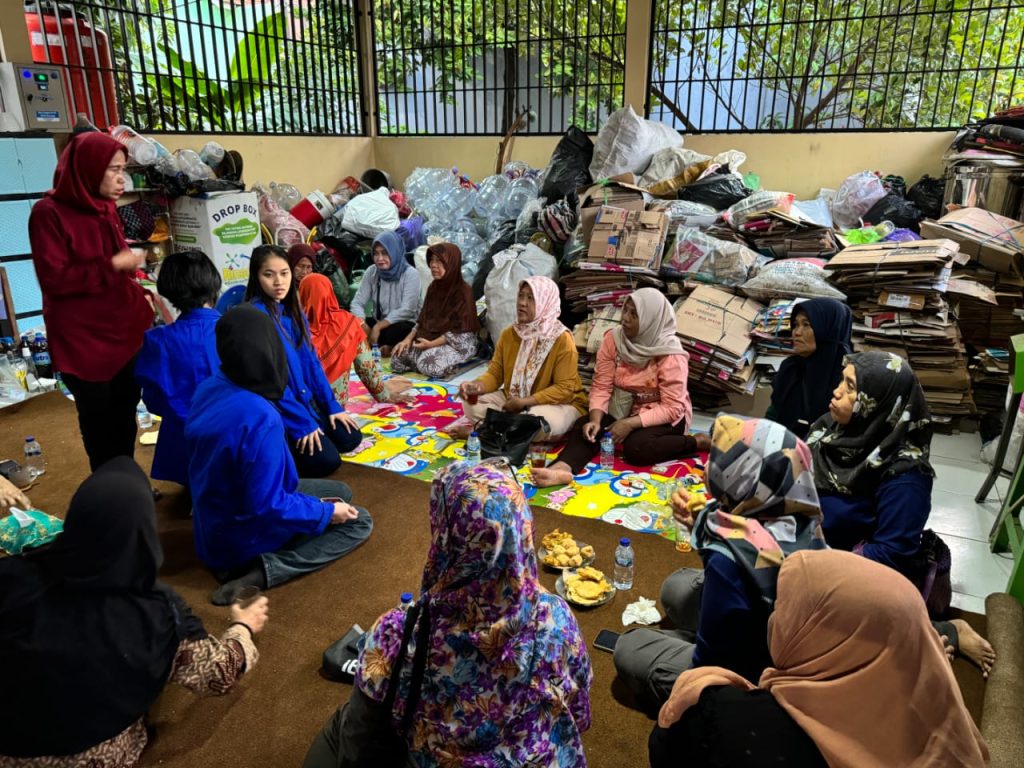
Another problem also saw an emergence in the Supply Chain of waste management in terms of information integration, spawning the slowdown of waste distribution from the waste bank to third parties.
“We also developed a machine used to make holes in plastic waste, allowing the waste to increase in value. The locals were also given socialization concerning the importance of selecting and utilizing waste, resulting in the formation of another waste bank in Tugurejo,” Septyana revealed.
The supervisor of this program, Asih Rohmani, M.Kom., explained that the aim of this program was to hone the soft skills of her students, as well as to put the knowledge they learned on campus into practice. This program is expected to produce an output in the form of products, such as SIPSATU and the machine used to make holes in plastic wastes, to maximize waste management to be more effective.
“We will also propose Intellectual Rights for SIPSATU and the plastic-holing machine. We will als monitor the information systems, and hopefully, the impact of this program can also inflict on the surrounding areas as well,” she concluded. (Humas Udinus/Alex. Foto: Dok. PPKO HM Sisfo)


